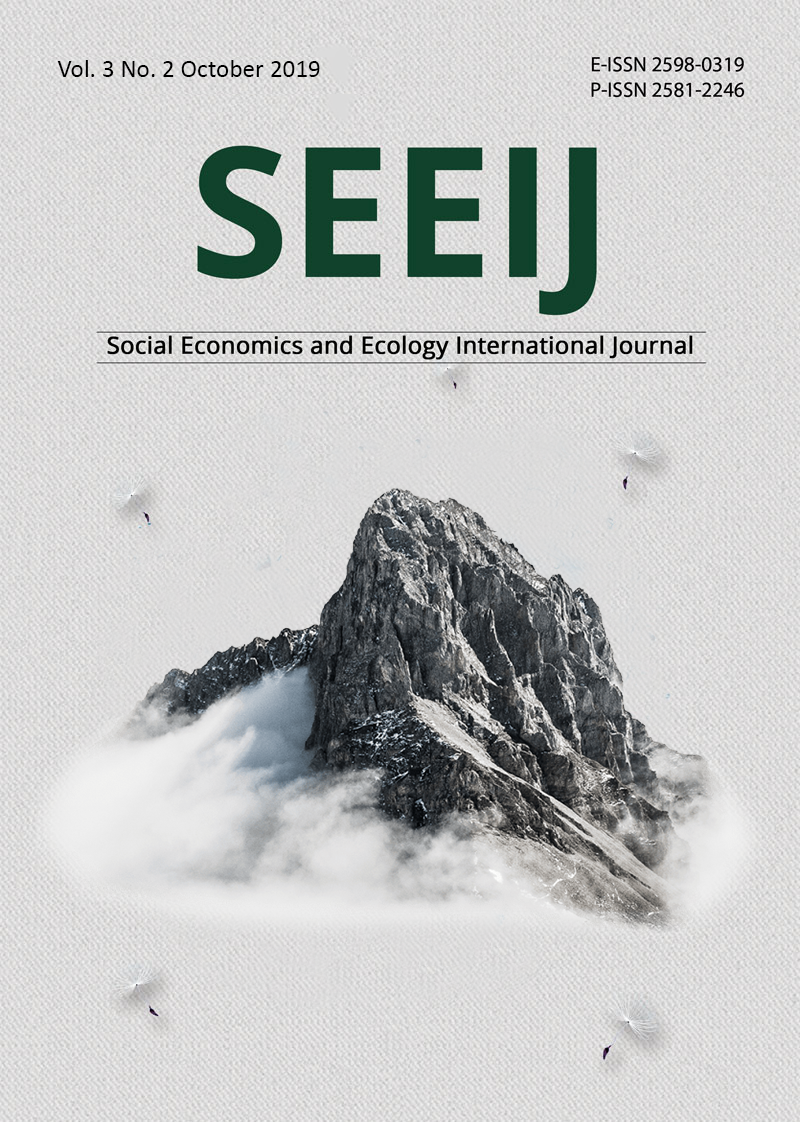The Holistic Approach in Education Development Programs: Case of Indonesia Mengajar
DOI:
https://doi.org/10.21512/seeij.v3i2.6215Abstract
This paper aims to describe one of sustainable projects of improving education quality in archipelagic nations. Indonesia Mengajar is an Indonesian NGO based in Jakarta which promotes volunteerism by being young educators. Their projects aim to fill the shortage of primary school teachers, especially in remote areas. By sending the best Indonesian university graduates which have been intensively trained to work as teachers for one consecutive year, it was expected they will be able to inspire young people to choose careers as educators. It is a qualitative study on how the organization plans and executes their projects. The findings stimulate further questions on how to solve the issue of quality education in Indonesia.References
Cooper, D.R and Schindler, P.S, 2008. Business Research Methods: Tenth Edition. McGraw-Hill International Edition.
Corbin, J and Strauss A., 2008. Basics of Qualitative Research 3e. Sage Publications
Yayasan Indonesia Mengajar Kirim Sarjana (2010, June 4th ). Retrieved from http://edukasi.kompas.com/read/2010/06/04/20560742/Yayasan.Indonesia.Mengajar.Kirim.Sarjana
Indonesia Mengajar sends 50 young teachers to remote areas. (December17th, 2015). Retrieved from http://www.thejakartapost.com/news/2015/12/17/indonesia-mengajar-sends-50-young-teachers-remote-areas.html
Sagita, D (2010) From Boardrooms to remote balkboars for 51 intrepid teachers. Retrieved fom http://jakartaglobe.id/archive/from-boardrooms-to-remote-blackboards-for-51-intrepid-teachers/
Rulistia, N.D (August 30th, 2010) Work as a teacher, change education in Indonesia. Retrieved from http://www.thejakartapost.com/news/2010/08/22/work-a-teacher-change-education-indonesia.html
Yosephine, L. (October 14, 2016) Young teachers fill-in education gaps across the archipelago, one year at a time. Retrieved from http://www.thejakartapost.com/news/2016/10/14/young-teachers-fill-in-education-gaps-across-the-archipelago-one-year-at-a-time.html
World Bank and Education in Indonesia (September 1st, 2014). Retrieved from http://www.worldbank.org/en/country/indonesia/brief/world-bank-and-education-in-indonesia
Downloads
Published
How to Cite
Issue
Section
License
Copyright (c) 2020 Adsina Fibra, Juliana Berewot

This work is licensed under a Creative Commons Attribution-NonCommercial 4.0 International License.
The Authors submitting a manuscript do so on the understanding that if accepted for publication, copyright of the article shall be assigned to SEEIJ Community Empowerment (CE) Bina Nusantara University as publisher of the journal.
Copyright encompasses exclusive rights to reproduce and deliver the article in all form and media, including reprints, photographs, microfilms and any other similar reproductions, as well as translations. The reproduction of any part of this journal, its storage in databases and its transmission by any form or media, such as electronic, electrostatic and mechanical copies, photocopies, recordings, magnetic media, etc., will be allowed only with a written permission from SEEIJ Community Empwerment (CE) Bina Nusantara University.
SEEIJ, the Editors and the reviewer make every effort to ensure that no wrong or misleading data, opinions or statements be published in the journal. In any way, the contents of the articles and advertisements published in the SEEIJ are sole and exclusive responsibility of their respective authors and advertisers.

This work is licensed under a Creative Commons Attribution-NonCommercial 4.0 International License.









